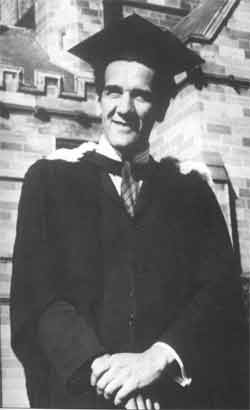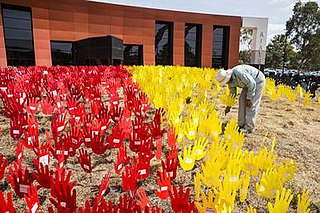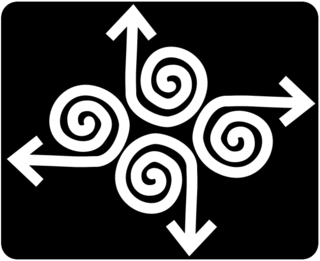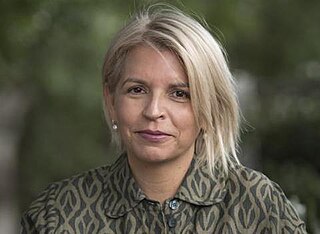Related Research Articles

The Aboriginal and Torres Strait Islander Commission (ATSIC) (1990–2005) was the Australian Government body through which Aboriginal Australians and Torres Strait Islanders were formally involved in the processes of government affecting their lives, established under the Hawke government in 1990. A number of Indigenous programs and organisations fell under the overall umbrella of ATSIC.

Charles Nelson Perkins, usually known as Charlie Perkins, was an Aboriginal Australian activist, soccer player and administrator. It is claimed he was the first known Indigenous Australian man to graduate tertiary education. He is known for his instigation and organisation of the 1965 Freedom Ride and his key role in advocating for a "yes" vote in the 1967 Aboriginals referendum. He had a long career as a public servant.

The Australian Institute of Aboriginal and Torres Strait Islander Studies (AIATSIS), established as the Australian Institute of Aboriginal Studies (AIAS) in 1964, is an independent Australian Government statutory authority. It is a collecting, publishing, and research institute and is considered to be Australia's premier resource for information about the cultures and societies of Aboriginal and Torres Strait Islander peoples.

Marcia Lynne Langton is an Aboriginal Australian writer and academic. As of 2022 she is the Redmond Barry Distinguished Professor at the Melbourne School of Population and Global Health, University of Melbourne. Langton is known for her activism in the Indigenous rights arena.
Kylie Belling is an Australian stage, film and television actress and voice artist, who has also worked in other occupations. As of 2019 she works as Senior Manager, First Peoples, for Creative Victoria.
Indigenous Australian self-determination, also known as Aboriginal Australian self-determination, is the power relating to self-governance by Aboriginal and Torres Strait Islander peoples in Australia. It is the right of Aboriginal and Torres Strait Islander peoples to determine their own political status and pursue their own economic, social and cultural interests. Self-determination asserts that Aboriginal and Torres Strait Islander peoples should direct and implement Aboriginal and Torres Strait Islander policy formulation and provision of services. Self-determination encompasses both Aboriginal land rights and self-governance, and may also be supported by a treaty between a government and an Indigenous group in Australia.
Linda Yunkata Syddick Napaltjarri is a Pintupi- and Pitjantjatjara- speaking Indigenous artist from Australia's Western Desert region. Her father was killed when she was young; her mother later married Shorty Lungkarta Tjungarrayi, an artist whose work was a significant influence on Linda Syddick's painting.
Matilda Williams House was born in 1945 on the Erambie Aboriginal Reserve at Cowra, New South Wales (NSW), and raised in her grandfather’s house at Hollywood Aboriginal Reserve in Yass, NSW. When she was 12, House spent a year in Parramatta Girls' Home. House was one of ten children.
Hetti Kemerre Perkins is an Aboriginal Australian art curator and writer. She is known for her work at the Art Gallery of New South Wales, where she was the senior curator of Aboriginal and Torres Strait Islander art at the gallery from around 1998 until 2011, and for many significant exhibitions and projects.
Hetty Perkins was an elder of the Eastern Arrernte people, an Aboriginal group from Central Australia. Several of her descendants have had prominent careers in various fields, both in the Northern Territory and in other states and territories.
Milyika Carroll, also known as Alison Carroll, Alison Milyika Carroll, or "Windlass" Carroll, is an Aboriginal Australian artist. She is also a community leader on the Aṉangu Pitjantjatjara Yankunytjatjara Lands in South Australia.

The Federal Council for the Advancement of Aborigines and Torres Strait Islanders (FCAATSI), founded in Adelaide, South Australia, as the Federal Council for Aboriginal Advancement (FCAA) on 16 February 1958, was a civil rights organisation which campaigned for the welfare of Aboriginal Australians and Torres Strait Islanders, and the first national body representing Aboriginal interests. It was influential in lobbying in favour of the 1967 Referendum on Aboriginal Australians. It was renamed to National Aboriginal and Islander Liberation Movement (NAILM) in the early to mid 1970s, before disbanding in 1978.
Olga Havnen is an Aboriginal leader, advocate and activist in the Northern Territory of Australia. She is currently the chief executive officer of the Danila Dilba Health Service in Darwin, an Aboriginal Community Controlled Health Service.
Brenda L. Croft is an Aboriginal Australian artist, curator, writer, and educator working across contemporary Indigenous and mainstream arts and cultural sectors. Croft was a founding member of the Boomalli Aboriginal Artists Cooperative in 1987.
Kirstie Parker is a Yuwallarai journalist, policy administrator and Aboriginal Australian activist. From 2013 to 2015 she served as the co-chair of the National Congress of Australia's First Peoples and during her tenure pressed for policies that allowed Aboriginal and Torres Strait Islander Australians to gain the ability for self-determination.

The Aboriginal and Torres Strait Islander Voice, also known as the Indigenous Voice to Parliament, the First Nations Voice or simply the Voice, was a proposed Australian federal advisory body to comprise Aboriginal and Torres Strait Islander people, to represent the views of Indigenous communities.
Patricia Lynette Dudgeon, usually known as Pat Dudgeon, is an Aboriginal Australian psychologist, Fellow of the Australian Psychological Society and a research professor at the University of Western Australia's (UWA) School of Indigenous Studies. Her area of research includes Indigenous social and emotional wellbeing and suicide prevention. She is actively involved with the Aboriginal community, having an ongoing commitment to social justice for Indigenous people. Dudgeon has participated in numerous state and national committees, councils, task groups and community service activities in both a voluntary and professional capacity.
Vanessa Lee-AhMat is an Australian scholar who was the first Aboriginal and Torres Strait Islander PhD graduate from Griffith University School of Medicine. In 2005, Lee-AhMat was recognised by the Parliament of Australia for her dedication and commitment to Thursday Island community, in the Torres Strait.
Shirleen Campbell is a Warlpiri, Anmatyerre, Luritja and Arrernte family and domestic violence activist from Mparntwe in the Northern Territory of Australia.

Hannah McGlade CF is an Australian academic, human rights advocate and lawyer. She is a Kurin Minang Noongar woman of the Bibulman nation and is as of May 2022 an associate professor at Curtin University's law school. She was appointed Senior Indigenous Fellow at the Office of the United Nations High Commissioner for Human Rights in 2016 and has been a member of the United Nations Permanent Forum on Indigenous Issues since 2020.
References
Citations
- 1 2 3 4 5 6 7 8 9 Henningham 2012.
- ↑ The Canberra Times 1990, p. 4.
- 1 2 3 4 National Indigenous Times 2016.
- ↑ Turner 1994.
- ↑ "Voice Co-Design Senior Advisory Group". Ministers Media Centre. 8 November 2019. Retrieved 1 February 2020.
- ↑ Remeikis, Amy (8 November 2019). "Chris Kenny added to group working on Indigenous voice to parliament". the Guardian. Retrieved 1 February 2020.
Bibliography
- Henningham, Nikki (27 February 2012). "Turner, Patricia". The Encyclopedia of Women and Leadership in Twentieth-Century Australia. Canberra, Australia: Australian Research Council. Archived from the original on 20 April 2018. Retrieved 15 August 2018.
- Turner, Patricia (1994). From paternalism to participation: the role of the Commonwealth in the administration of Aboriginal and Torres Strait Islander affairs policy (master's degree). Canberra, Australia: University of Canberra, Faculty of Management. Retrieved 16 August 2018.
- "Australia Day Honours". Canberra, Australia: The Canberra Times. 26 January 1990. p. 4. Retrieved 15 August 2018.
- "Pat Turner to head up NACCHO". Como, Western Australia: National Indigenous Times. 27 April 2016. Archived from the original on 17 April 2018. Retrieved 15 August 2018.